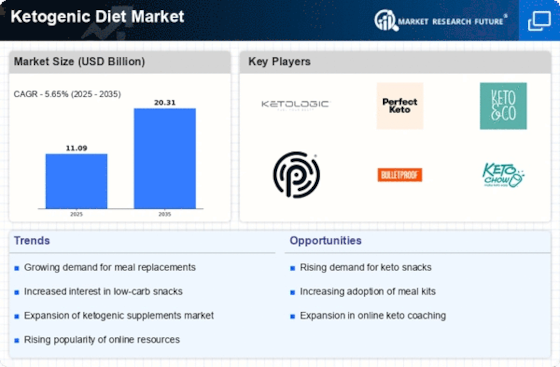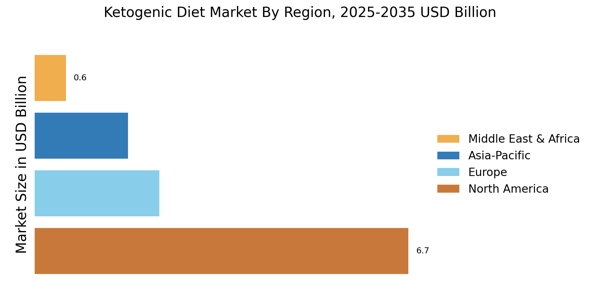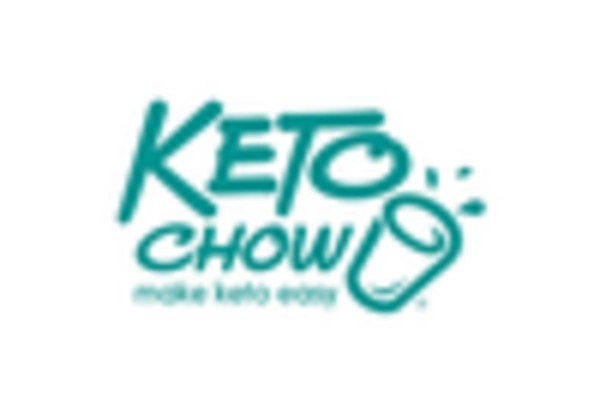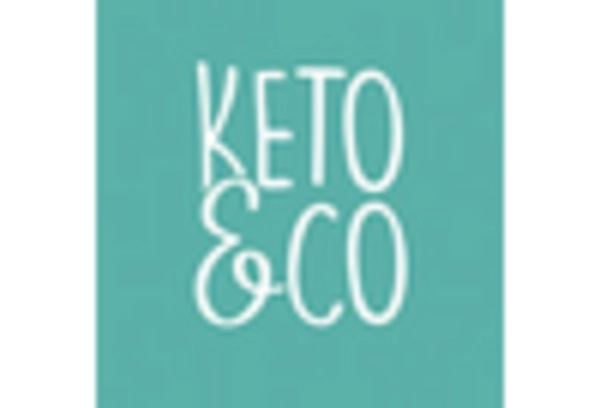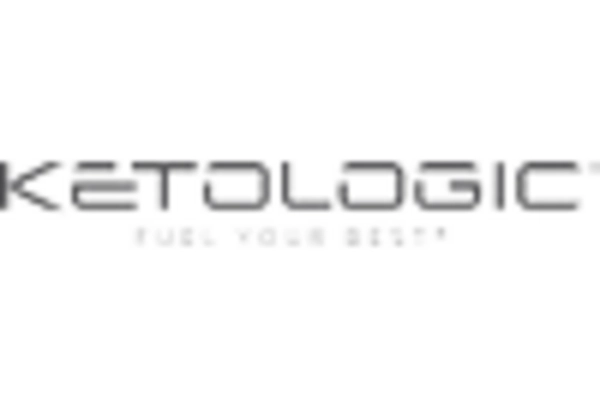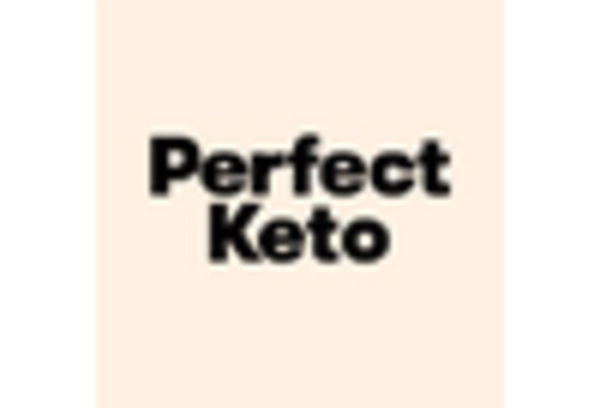North America : Market Leader in Ketogenic Diet Market
North America is the largest market for the ketogenic diet, accounting for approximately 60% of the global share. The North America ketogenic diet market is driven by increasing health consciousness, rising obesity rates, and a growing preference for low-carb diets. Strong distribution networks and digital retail platforms further enhance the dominance of the North America ketogenic diet market. The competitive landscape in North America is robust, featuring key players like KetoLogic, Perfect Keto, and Pruvit. These companies leverage innovative marketing strategies and product diversification to capture consumer interest. The presence of a well-established distribution network and e-commerce platforms enhances accessibility, making ketogenic products widely available to health-conscious consumers across the region.
Europe : Emerging Market for Ketogenic Diet Market
Europe is witnessing a steady rise in adoption, supported by increasing awareness of low-carb dietary benefits and favorable regulatory environments, contributing to overall ketogenic diet market analysis. The growth is fueled by increasing awareness of health benefits associated with low-carb diets and rising obesity levels. Countries like Germany and the UK are leading this trend, supported by favorable regulations promoting healthy eating habits. The European market is expected to grow as more consumers adopt ketogenic diets for weight management and overall health. Germany and the UK are at the forefront of this market, with a growing number of local brands entering the space. The competitive landscape includes both established and emerging players, focusing on product innovation and quality. Regulatory bodies are increasingly recognizing the importance of dietary guidelines, which further supports the market's growth. The European Food Safety Authority emphasizes the need for balanced diets, which indirectly promotes ketogenic options.
Asia-Pacific : Rising Interest in Ketogenic Diet Market
Asia-Pacific is emerging as a growth-oriented region for ketogenic products, supported by urbanization, rising disposable incomes, and increasing health awareness, reinforcing the growth of ketogenic diet market globally. The region's growth is driven by increasing disposable incomes, urbanization, and a growing awareness of health and wellness. Countries like Australia and Japan are leading the charge, with rising demand for low-carb and high-fat food products. Regulatory frameworks are gradually adapting to support health-focused dietary trends, which is expected to further boost market growth. Australia is the largest market in the region, with Japan following closely. The competitive landscape is characterized by a mix of local and international brands, including Keto and Co and Bulletproof. The presence of e-commerce platforms facilitates easy access to ketogenic products, catering to the growing health-conscious consumer base. As awareness of the ketogenic diet increases, more players are likely to enter the market, enhancing competition and innovation.
Middle East and Africa : Developing Market for Ketogenic Diet Market
The Middle East and Africa region is gradually emerging, supported by rising health awareness and evolving dietary preferences, aligning with long-term ketogenic diet market trends. The growth is driven by increasing health awareness, rising obesity rates, and a shift towards healthier eating habits. Countries like South Africa and the UAE are leading this trend, supported by a growing number of health-focused initiatives and dietary guidelines. Regulatory bodies are beginning to recognize the importance of promoting healthier food options, which is expected to catalyze market growth. South Africa is the largest market in the region, with the UAE following closely. The competitive landscape is still developing, with a few local brands and international players entering the market. The presence of health food stores and online platforms is enhancing accessibility to ketogenic products, catering to the growing demand for health-conscious options. As awareness increases, the market is poised for significant growth in the coming years.


